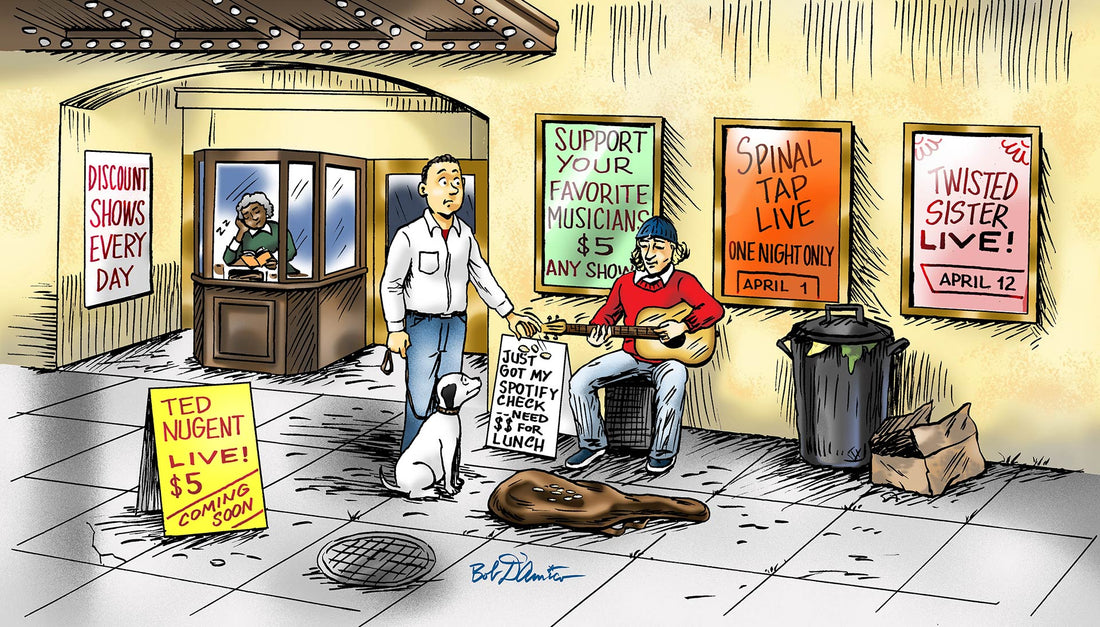In the three years I’ve written this column, there have been several occasions when it’s occurred to me that it may be misnamed. Truth be told, I’m more of a disappointed idealist than a true cynic—but “Disappointed Idealist” sounds like a particularly sad sack handle on Match.com, no?
Anyway. During those three years, Copper has targeted Spotify several times, starting with the cartoon on the cover of issue#3, reprinted as the header pic above. The sign posted by the busker in the pic isn’t much of an exaggeration—a number of musician friends have told me of checks so small that they were kept as infuriating reminders of the unfairness of the payment schemes of most streaming services. Our own Dan Schwartz—composer/artist on some gazillion-selling records—has mentioned receiving a payment check from a streaming service—for 1 cent.
That’s right: $0.01.
I’ve written about Spotify’s bewildering business structure: the more subscribers they have, the more money they lose—and wondered how on earth that would make last year’s IPO at all appealing. Well—initial response to the offering last April was less than overwhelming, and after nearly a year, the stock has skyrocketed from $144/share all the way up to…$140? With dips down as low as $103?
Meanwhile, founder Daniel Ek is routinely referred to as a billionaire. I guess my understanding of high finance is just not sufficient to allow me to understand this stuff.
If you look at the books of Spotify, you’ll see that their biggest single expenditures are royalty payments to the record companies—and yet, Peter Frampton’s song, “Baby I Love Your Way” was streamed 55 million times, for which he was paid…$1,700. Seems like around .03 cents per stream—but feel free to check the math.
Just bypass the mind-boggling fact that that many people wanted to hear that song, and focus on the fairness of the payment to the artist.
In January, there was a rare victory in the battle for creators’ rights: in the Music Modernization Act, the US Copyright Royalty Board confirmed an earlier decision to increase royalty payments to songwriters by 44%, as part of the so-called compulsory mechanical rates, royalties paid for public payment of their work. Well—it’s not as much as it sounds. That 44% is not the piece of the revenue paid for public use, it’s the increase in the percentage paid to the composer, from 10.5% to 15.1%. The rest of the money goes to the label.
Even in victory, it seems like artists are being screwed. Unfortunately…yes, there’s more.
Spotify—along with Amazon, Google, and Pandora—is appealing to overturn the increase put into force by the Music Modernization Act. As you can imagine, rhetoric on both sides of the issue is flying fast and furious. While Google, Pandora, and Spotify issued a joint statement in boring legalese, artists and producers are rather more passionate. Producer Larry Klein (nominated for this year’s Producer of the Year Grammy) posted on Facebook: “This has got to change. The people who create music have got to be compensated properly for the art that they create….Our entire culture has suffered, and will continue to suffer if nothing is done.”
I agree with him—so maybe I’m not a cynic. But those other guys surely are.



